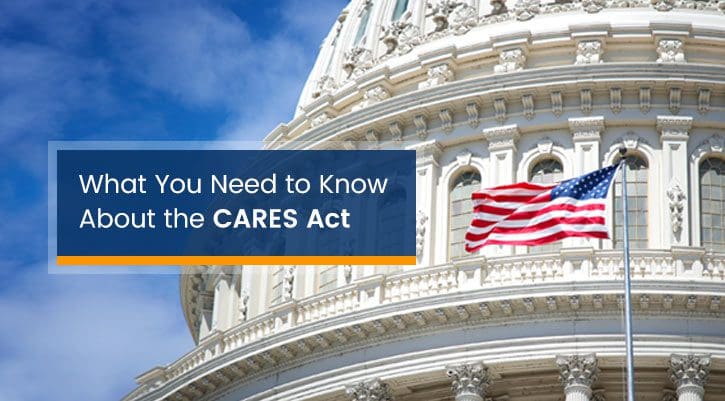By Mike McWherter, JD / Chief Compliance Officer PenChecks Trust®
On March 27, 2020, the Coronavirus Aid, Relief, and Economic Security Act (the CARES Act) was signed into law. At $2 trillion, the CARES Act is the largest economic stimulus and relief package in U.S. history.
The CARES Act has several provisions that impact retirement plans, participants, plan sponsors, TPAs and other service providers. In this analysis we’ll briefly address three – Coronavirus-related Distributions, Required Minimum Distributions and Plan Loans.
Coronavirus-related Distributions
The CARES Act creates an optional, temporary (available 1/01/2020 thru 12/31/2020) distributable event called a “Coronavirus-related distribution,” or CRD for short. It’s available to participants in 401(k), PSP, 403(b) and 457(b) plan types, as well as IRAs, who have experienced one of the following events:
- Participant is diagnosed with the virus (via test approved by CDC)
- Participant’s spouse or dependent is diagnosed with the virus
- Participant experiences adverse financial consequences as a result of quarantine, furlough, laid off, work hours reduced, closing of business, or other factors as determined by the Secretary of the Treasury
Note: Defined Benefit and Money Purchase Plan participants are not able to take CRDs; normal distribution rules apply for these plan types.
Plans may rely on the participant’s certification for any of the three bullets above. A participant may take a CRD of up to $100,000. The mandatory 20% withholding tax and the 10% early withdrawal penalty (if the participant is under 59 ½) are waived.
The CRD may, but does not have to, be repaid. If so:
- It may be repaid over a 3-year period beginning on the day after the distribution is received (e.g., date on the check).
- Repayments may be made in one contribution or in a series of contributions, up to the amount of the distribution.
If not repaid, the CRD is included as taxable income spread ratably over three years.
Current unknowns for CRDs the IRS will need to provide guidance for include:
- Distribution codes
- Re-contribution of a CRD – probably treated like a loan repayment
- Reclassification of a distribution taken between 1/01/2020 and 3/27/2020
Limited Waiver of Required Minimum Distributions (RMDs)
This waiver applies to the following plan types: Defined Contribution plans under IRC §401(a), 403(b) plans, 457(b) governmental plans and IRAs. As with CRDs, the waiver of RMDs does not apply to Defined Benefit plans.
What RMDs are waived?
For 2020 RMDs. If the required beginning date was in 2020 (i.e., 4/01/2020) and the plan hasn’t already distributed the RMD, then that RMD is waived.
For 2019 RMDs. There are three scenarios if the participant turned 70 ½ in 2019 and has a 4/01/2020 beginning date:
01. The participant has not yet taken the RMD. No RMD is required in 2020 for the 2019 distribution year.
02. The participant has taken an RMD after 12/31/2019. It is subject to waiver for 2020, and the amount may be rolled over. Additional IRS guidance will be needed here.
03. The RMD was taken in 2019. No relief is available under current IRS guidance.
Plan Loans
The CARES Act also temporarily allows a participant to take an increased loan amount from their retirement plan account balance.
How much?
Loan amounts have been temporarily increased to 100% of the present value of the participant’s vested account balance, capped at $100,000.
When?
The increase is temporary, and only available during the 180-day period beginning March 27, 2020.
Loan Repayment Provisions?
Any plan loan repayment (not just Coronavirus-related loans) due on any current plan loan can be delayed up to one year from the date of enactment (3/27/2020) to 12/31/2020. The 5-year loan repayment period can also be extended for one year, but interest continues to accrue during the delayed repayment period.
Last Word
PenChecks is in the process of operationalizing the provisions of the CARES Act. This will take a few days as we must modify internal systems, forms and procedures to accommodate this, and test before releasing into production. We appreciate your patience while we make these changes, and we’ll have more information to share with you in just a few days.
Mike joined PenChecks in 2012 and is responsible for managing and overseeing the company-wide compliance function. With more than 30 years of combined legal, financial institution and ERISA plan provider compliance experience, Mike provides guidance and oversight for all compliance matters, supervises regulatory exams and audits, and coordinates between outside counsel, management and the board of directors.

0 Comments